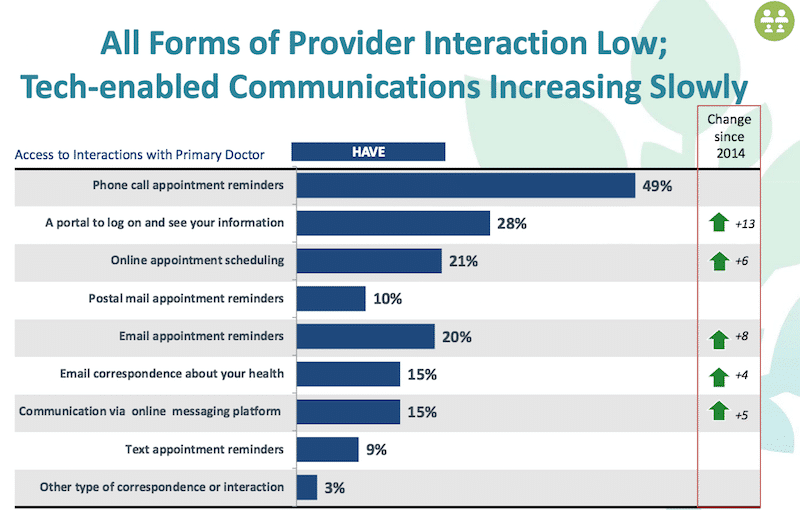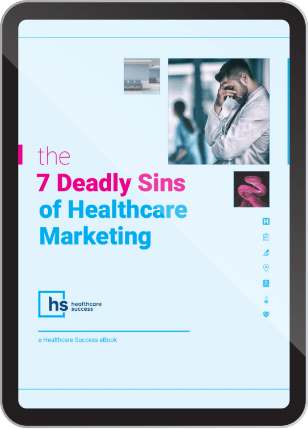Patients Feel Healthcare Is Stuck in the Digital Dark Ages
Earlier this week a colleague was stuck in a medical office verbally providing health history details for a staff person to type into the practice computer. The desk was stacked with thick, unfiled charts that nearly filled the space between patient and office manager.
Facetiously, someone (nameless) joked how the dawning age of Electronic Medical Records (EMR) was bringing a paperless society to healthcare. Obviously not amused, the office manager observed that EMR was still a fiction, and that her computer system not only crashed at least twice a week, it did not integrate with any other system in the hospital (or with patients).
For this facility, being stuck in the digital dark ages is also why the same labor intensive input process (of exactly the same information) is begrudgingly repeated, from patient to staff, at each of several stops in a single visit and medical encounter.
What patients really want…but don’t get.
Some hospitals and medical offices enjoy a distinct competitive marketing advantage by embracing EMR and communications technology. But the widely anticipated benefits of such grand advances are, for many patients, still a vague and distant hope.
What patients say they want--but can’t get--are relatively simpler and more practical help in reaching their doctor. A new Nielsen survey—like several other previous surveys—observes: “Americans manage much of their lives through digital and electronic tools, except when it comes to healthcare.”
It turns out that nearly-old-fashioned phone call and email interaction would be a good beginning. “The survey, conducted by Nielsen Strategic Health Perspectives, polled more than 5,000 Americans ages 18 and over and looked at attitudes about and use of technology to inform, access and manage their medical care. Results from those surveyed showed that:
- Less than half - 45 percent - receive even the traditional telephone appointment reminders
- Only one in five - 21 percent - have access to online appointment scheduling with their doctors
- Fifteen percent use email to communicate with their provider
- Just 14 percent have 24/7 access to medical advice
- Fewer than one in ten - nine percent - receive reminders by text
- Only a small percentage - three percent - are able to send a photo of a medical condition over email
- Just 2 percent have access to video visits
“The survey also highlighted four consumer groups who were most interested in gaining greater access to their doctors through digital and electronic technology: parents with children covered under their health plans, chronically ill patients, patients with acute conditions, and adults under 35 years of age.”

Nielsen Strategic Health Perspectives
Improving patient care and convenience…
The categories of “access to interaction with a primary doctor” don’t seem imposing or impossible. Online schedule appointments, email or text messaging reminders are everyday tools of convenience for consumers…and an expected standard of service nearly everywhere else in society.
The positive marketing opportunity in this seemingly gloomy news, is that the hospital or medical office that can answer these consumer/patient, will capture a leadership position in differentiating itself among the competition. What's more, the technological hurdle is low and the business and marketing opportunity is high.
In healthcare delivery, convenience has become the new competitive currency. The providers who have moved out of the digital dark ages and are responding to what patients want—and to expect as real-world consumers—are marketing and patient satisfaction winners.








